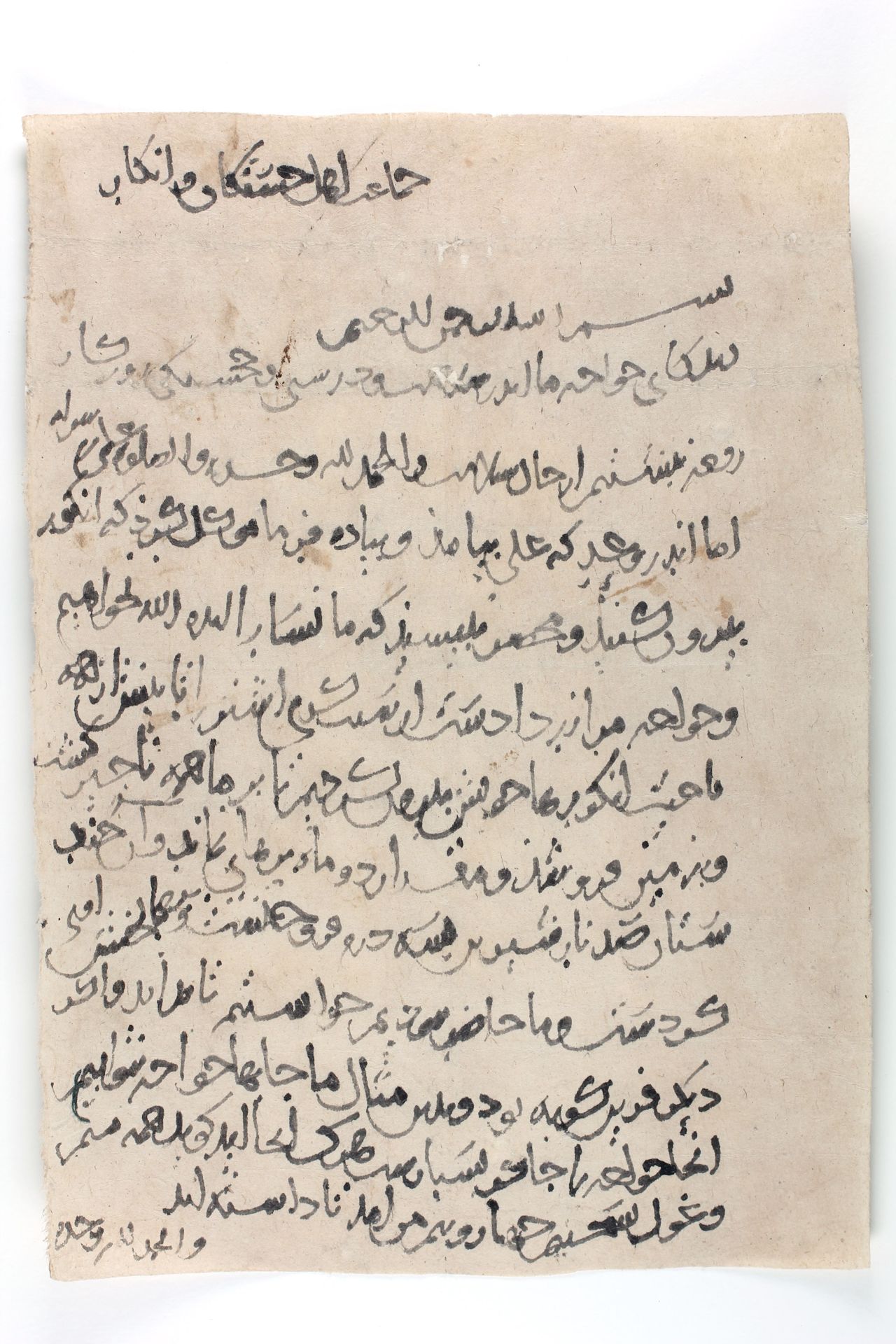Download IEDC Data
You are about to download data for the current text from the IEDC database.
To start the download, please click on your desired format below.
Note: it can take up to several minutes to download your data, so please wait whilst it processes
- Microsoft Word (.docx)
- JSON
Content
Dates
Details
People
Publications
- Haim, Ofir. "Jews, Landlords and Peasants in the Ghaznavid Bamiyan Hinterland: A Private Archive from the Eleventh Century (Bamiyan Papers/Afghan Genizah)." ‘Atiqot, 2023. (Pages: 218-220)
The IEDC translation and transcription have been taken from this publication - https://invisibleeast.web.ox.ac.uk/article/sour-grapes-complaints-homestead
Related Shelfmarks
IEDC Data
Citations
© National Library of Israel, All rights reserved.
If you wish to reproduce these images please contact National Library of Israel.
